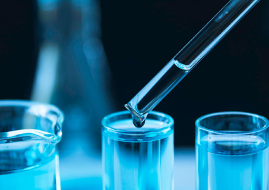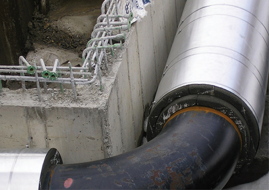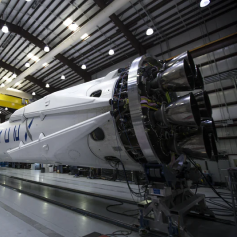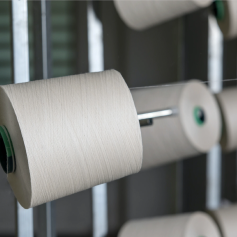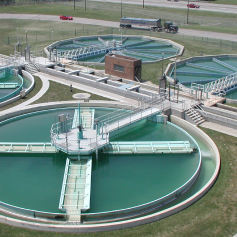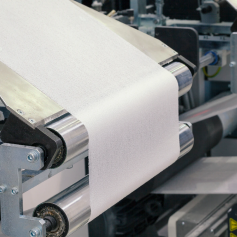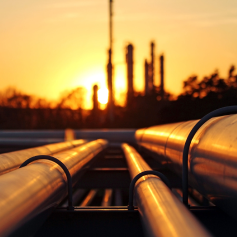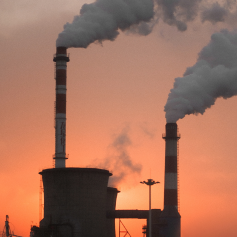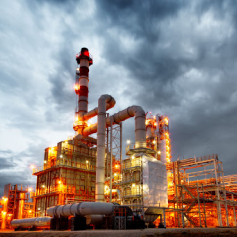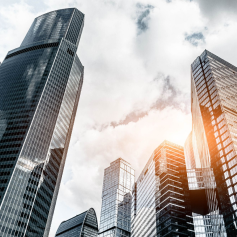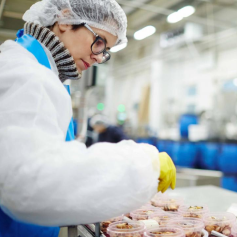- Home
- Businesses
-
-
-
Industrial NanoTech Businesses
-
What’s New
Many pandemic-driven changes to cancer clinical trials should remain
Lorem Ipsum is simply dummy text of the printing and typesetting industry. Lorem Ipsum has been…
Immunotherapy May Be Effective for Subset of Patients With Prostate Cancer
Lorem Ipsum is simply dummy text of the printing and typesetting industry. Lorem Ipsum has been…
Gap in Breast Cancer Survival for Black, White Patients Shrinks, But Not by Enough
Lorem Ipsum is simply dummy text of the printing and typesetting industry. Lorem Ipsum has been…
-
-
-
-
-
- Brands
-
-
-
Industrial NanoTech Brands
-
What’s New
Many pandemic-driven changes to cancer clinical trials should remain
Lorem Ipsum is simply dummy text of the printing and typesetting industry. Lorem Ipsum has been…
Immunotherapy May Be Effective for Subset of Patients With Prostate Cancer
Lorem Ipsum is simply dummy text of the printing and typesetting industry. Lorem Ipsum has been…
Gap in Breast Cancer Survival for Black, White Patients Shrinks, But Not by Enough
Lorem Ipsum is simply dummy text of the printing and typesetting industry. Lorem Ipsum has been…
-
-
-
-
- Research & Innovation
-
-
-
Industrial NanoTech Research & Innovation
-
What’s New
Many pandemic-driven changes to cancer clinical trials should remain
Lorem Ipsum is simply dummy text of the printing and typesetting industry. Lorem Ipsum has been…
Immunotherapy May Be Effective for Subset of Patients With Prostate Cancer
Lorem Ipsum is simply dummy text of the printing and typesetting industry. Lorem Ipsum has been…
Gap in Breast Cancer Survival for Black, White Patients Shrinks, But Not by Enough
Lorem Ipsum is simply dummy text of the printing and typesetting industry. Lorem Ipsum has been…
-
-
-
- Self Reporting TechnologiesLorem ipsum is a placeholder text commonly used to demonstrate the visual form of a document or a typeface without relying on meaningful content.
- Advanced Thermal InsulationLorem ipsum is a placeholder text commonly used to demonstrate the visual form of a document or a typeface without relying on meaningful content.
- Corrosion Prevention TechnologiesLorem ipsum is a placeholder text commonly used to demonstrate the visual form of a document or a typeface without relying on meaningful content.
- Clean Energy GenerationLorem ipsum is a placeholder text commonly used to demonstrate the visual form of a document or a typeface without relying on meaningful content.
- Workplace SafetyLorem ipsum is a placeholder text commonly used to demonstrate the visual form of a document or a typeface without relying on meaningful content.
- Nurturing ScientistsLorem ipsum is a placeholder text commonly used to demonstrate the visual form of a document or a typeface without relying on meaningful content.
-
-
-
- Industries
-
-
-
Industrial NanoTech Industries
-
What’s New
Many pandemic-driven changes to cancer clinical trials should remain
Lorem Ipsum is simply dummy text of the printing and typesetting industry. Lorem Ipsum has been…
Immunotherapy May Be Effective for Subset of Patients With Prostate Cancer
Lorem Ipsum is simply dummy text of the printing and typesetting industry. Lorem Ipsum has been…
Gap in Breast Cancer Survival for Black, White Patients Shrinks, But Not by Enough
Lorem Ipsum is simply dummy text of the printing and typesetting industry. Lorem Ipsum has been…
-
-
-
-
- Careers
-
-
-
Industrial NanoTech Careers
-
What’s New
Many pandemic-driven changes to cancer clinical trials should remain
Lorem Ipsum is simply dummy text of the printing and typesetting industry. Lorem Ipsum has been…
Immunotherapy May Be Effective for Subset of Patients With Prostate Cancer
Lorem Ipsum is simply dummy text of the printing and typesetting industry. Lorem Ipsum has been…
Gap in Breast Cancer Survival for Black, White Patients Shrinks, But Not by Enough
Lorem Ipsum is simply dummy text of the printing and typesetting industry. Lorem Ipsum has been…
-
-
-
- JobsLorem ipsum is a placeholder text commonly used to demonstrate the visual form of a document or a typeface without relying on meaningful content.
- Benefits & RewardsLorem ipsum is a placeholder text commonly used to demonstrate the visual form of a document or a typeface without relying on meaningful content.
- Life At Industrial NanotechLorem ipsum is a placeholder text commonly used to demonstrate the visual form of a document or a typeface without relying on meaningful content.
- How We HireLorem ipsum is a placeholder text commonly used to demonstrate the visual form of a document or a typeface without relying on meaningful content.
- StudentsLorem ipsum is a placeholder text commonly used to demonstrate the visual form of a document or a typeface without relying on meaningful content.
-
-
-
- Newsroom
-
-
-
Industrial NanoTech Newsroom
-
What’s New
Many pandemic-driven changes to cancer clinical trials should remain
Lorem Ipsum is simply dummy text of the printing and typesetting industry. Lorem Ipsum has been…
Immunotherapy May Be Effective for Subset of Patients With Prostate Cancer
Lorem Ipsum is simply dummy text of the printing and typesetting industry. Lorem Ipsum has been…
Gap in Breast Cancer Survival for Black, White Patients Shrinks, But Not by Enough
Lorem Ipsum is simply dummy text of the printing and typesetting industry. Lorem Ipsum has been…
-
-
-
- NewsroomLorem ipsum is a placeholder text commonly used to demonstrate the visual form of a document or a typeface without relying on meaningful content.
- Media ContactsLorem ipsum is a placeholder text commonly used to demonstrate the visual form of a document or a typeface without relying on meaningful content.
- Media CoverageLorem ipsum is a placeholder text commonly used to demonstrate the visual form of a document or a typeface without relying on meaningful content.
- Social MediaLorem ipsum is a placeholder text commonly used to demonstrate the visual form of a document or a typeface without relying on meaningful content.
- VideosLorem ipsum is a placeholder text commonly used to demonstrate the visual form of a document or a typeface without relying on meaningful content.
-
-
-
- Investor Relations
-
-
-
Industrial NanoTech Investor Relations
-
What’s New
Many pandemic-driven changes to cancer clinical trials should remain
Lorem Ipsum is simply dummy text of the printing and typesetting industry. Lorem Ipsum has been…
Immunotherapy May Be Effective for Subset of Patients With Prostate Cancer
Lorem Ipsum is simply dummy text of the printing and typesetting industry. Lorem Ipsum has been…
Gap in Breast Cancer Survival for Black, White Patients Shrinks, But Not by Enough
Lorem Ipsum is simply dummy text of the printing and typesetting industry. Lorem Ipsum has been…
-
-
-
- Investor RelationsLorem ipsum is a placeholder text commonly used to demonstrate the visual form of a document or a typeface without relying on meaningful content.
- NewsLorem ipsum is a placeholder text commonly used to demonstrate the visual form of a document or a typeface without relying on meaningful content.
- Events and presentationsLorem ipsum is a placeholder text commonly used to demonstrate the visual form of a document or a typeface without relying on meaningful content.
- Stock InformationLorem ipsum is a placeholder text commonly used to demonstrate the visual form of a document or a typeface without relying on meaningful content.
- SEC FilingsLorem ipsum is a placeholder text commonly used to demonstrate the visual form of a document or a typeface without relying on meaningful content.
- GovernanceLorem ipsum is a placeholder text commonly used to demonstrate the visual form of a document or a typeface without relying on meaningful content.
-
-
-
- Our Company
-
-
-
Industrial NanoTech Our Company
-
What’s New
Many pandemic-driven changes to cancer clinical trials should remain
Lorem Ipsum is simply dummy text of the printing and typesetting industry. Lorem Ipsum has been…
Immunotherapy May Be Effective for Subset of Patients With Prostate Cancer
Lorem Ipsum is simply dummy text of the printing and typesetting industry. Lorem Ipsum has been…
Gap in Breast Cancer Survival for Black, White Patients Shrinks, But Not by Enough
Lorem Ipsum is simply dummy text of the printing and typesetting industry. Lorem Ipsum has been…
-
-
-
- Company HistoryLorem ipsum is a placeholder text commonly used to demonstrate the visual form of a document or a typeface without relying on meaningful content.
- Leadership TeamLorem ipsum is a placeholder text commonly used to demonstrate the visual form of a document or a typeface without relying on meaningful content.
- What We Stand ForLorem ipsum is a placeholder text commonly used to demonstrate the visual form of a document or a typeface without relying on meaningful content.
- Quality PolicyLorem ipsum is a placeholder text commonly used to demonstrate the visual form of a document or a typeface without relying on meaningful content.
- Community ManagementLorem ipsum is a placeholder text commonly used to demonstrate the visual form of a document or a typeface without relying on meaningful content.
- Awards & RecognitionLorem ipsum is a placeholder text commonly used to demonstrate the visual form of a document or a typeface without relying on meaningful content.
-
-
-
- Contact Us
-
-
-
Industrial NanoTech Contact Us
-
-
-
-
- Headquarter locationLorem ipsum is a placeholder text commonly used to demonstrate the visual form of a document or a typeface without relying on meaningful content.
- Job searchLorem ipsum is a placeholder text commonly used to demonstrate the visual form of a document or a typeface without relying on meaningful content.
- Submit RFPLorem ipsum is a placeholder text commonly used to demonstrate the visual form of a document or a typeface without relying on meaningful content.
-
-
-
- Become a Distributor
Industrial NanoTech
Navigation
- Home
- Businesses
-
-
-
Industrial NanoTech Businesses
-
What’s New
Many pandemic-driven changes to cancer clinical trials should remain
Lorem Ipsum is simply dummy text of the printing and typesetting industry. Lorem Ipsum has been…
Immunotherapy May Be Effective for Subset of Patients With Prostate Cancer
Lorem Ipsum is simply dummy text of the printing and typesetting industry. Lorem Ipsum has been…
Gap in Breast Cancer Survival for Black, White Patients Shrinks, But Not by Enough
Lorem Ipsum is simply dummy text of the printing and typesetting industry. Lorem Ipsum has been…
-
-
-
-
-
- Brands
-
-
-
Industrial NanoTech Brands
-
What’s New
Many pandemic-driven changes to cancer clinical trials should remain
Lorem Ipsum is simply dummy text of the printing and typesetting industry. Lorem Ipsum has been…
Immunotherapy May Be Effective for Subset of Patients With Prostate Cancer
Lorem Ipsum is simply dummy text of the printing and typesetting industry. Lorem Ipsum has been…
Gap in Breast Cancer Survival for Black, White Patients Shrinks, But Not by Enough
Lorem Ipsum is simply dummy text of the printing and typesetting industry. Lorem Ipsum has been…
-
-
-
-
- Research & Innovation
-
-
-
Industrial NanoTech Research & Innovation
-
What’s New
Many pandemic-driven changes to cancer clinical trials should remain
Lorem Ipsum is simply dummy text of the printing and typesetting industry. Lorem Ipsum has been…
Immunotherapy May Be Effective for Subset of Patients With Prostate Cancer
Lorem Ipsum is simply dummy text of the printing and typesetting industry. Lorem Ipsum has been…
Gap in Breast Cancer Survival for Black, White Patients Shrinks, But Not by Enough
Lorem Ipsum is simply dummy text of the printing and typesetting industry. Lorem Ipsum has been…
-
-
-
- Self Reporting TechnologiesLorem ipsum is a placeholder text commonly used to demonstrate the visual form of a document or a typeface without relying on meaningful content.
- Advanced Thermal InsulationLorem ipsum is a placeholder text commonly used to demonstrate the visual form of a document or a typeface without relying on meaningful content.
- Corrosion Prevention TechnologiesLorem ipsum is a placeholder text commonly used to demonstrate the visual form of a document or a typeface without relying on meaningful content.
- Clean Energy GenerationLorem ipsum is a placeholder text commonly used to demonstrate the visual form of a document or a typeface without relying on meaningful content.
- Workplace SafetyLorem ipsum is a placeholder text commonly used to demonstrate the visual form of a document or a typeface without relying on meaningful content.
- Nurturing ScientistsLorem ipsum is a placeholder text commonly used to demonstrate the visual form of a document or a typeface without relying on meaningful content.
-
-
-
- Industries
-
-
-
Industrial NanoTech Industries
-
What’s New
Many pandemic-driven changes to cancer clinical trials should remain
Lorem Ipsum is simply dummy text of the printing and typesetting industry. Lorem Ipsum has been…
Immunotherapy May Be Effective for Subset of Patients With Prostate Cancer
Lorem Ipsum is simply dummy text of the printing and typesetting industry. Lorem Ipsum has been…
Gap in Breast Cancer Survival for Black, White Patients Shrinks, But Not by Enough
Lorem Ipsum is simply dummy text of the printing and typesetting industry. Lorem Ipsum has been…
-
-
-
-
- Careers
-
-
-
Industrial NanoTech Careers
-
What’s New
Many pandemic-driven changes to cancer clinical trials should remain
Lorem Ipsum is simply dummy text of the printing and typesetting industry. Lorem Ipsum has been…
Immunotherapy May Be Effective for Subset of Patients With Prostate Cancer
Lorem Ipsum is simply dummy text of the printing and typesetting industry. Lorem Ipsum has been…
Gap in Breast Cancer Survival for Black, White Patients Shrinks, But Not by Enough
Lorem Ipsum is simply dummy text of the printing and typesetting industry. Lorem Ipsum has been…
-
-
-
- JobsLorem ipsum is a placeholder text commonly used to demonstrate the visual form of a document or a typeface without relying on meaningful content.
- Benefits & RewardsLorem ipsum is a placeholder text commonly used to demonstrate the visual form of a document or a typeface without relying on meaningful content.
- Life At Industrial NanotechLorem ipsum is a placeholder text commonly used to demonstrate the visual form of a document or a typeface without relying on meaningful content.
- How We HireLorem ipsum is a placeholder text commonly used to demonstrate the visual form of a document or a typeface without relying on meaningful content.
- StudentsLorem ipsum is a placeholder text commonly used to demonstrate the visual form of a document or a typeface without relying on meaningful content.
-
-
-
- Newsroom
-
-
-
Industrial NanoTech Newsroom
-
What’s New
Many pandemic-driven changes to cancer clinical trials should remain
Lorem Ipsum is simply dummy text of the printing and typesetting industry. Lorem Ipsum has been…
Immunotherapy May Be Effective for Subset of Patients With Prostate Cancer
Lorem Ipsum is simply dummy text of the printing and typesetting industry. Lorem Ipsum has been…
Gap in Breast Cancer Survival for Black, White Patients Shrinks, But Not by Enough
Lorem Ipsum is simply dummy text of the printing and typesetting industry. Lorem Ipsum has been…
-
-
-
- NewsroomLorem ipsum is a placeholder text commonly used to demonstrate the visual form of a document or a typeface without relying on meaningful content.
- Media ContactsLorem ipsum is a placeholder text commonly used to demonstrate the visual form of a document or a typeface without relying on meaningful content.
- Media CoverageLorem ipsum is a placeholder text commonly used to demonstrate the visual form of a document or a typeface without relying on meaningful content.
- Social MediaLorem ipsum is a placeholder text commonly used to demonstrate the visual form of a document or a typeface without relying on meaningful content.
- VideosLorem ipsum is a placeholder text commonly used to demonstrate the visual form of a document or a typeface without relying on meaningful content.
-
-
-
- Investor Relations
-
-
-
Industrial NanoTech Investor Relations
-
What’s New
Many pandemic-driven changes to cancer clinical trials should remain
Lorem Ipsum is simply dummy text of the printing and typesetting industry. Lorem Ipsum has been…
Immunotherapy May Be Effective for Subset of Patients With Prostate Cancer
Lorem Ipsum is simply dummy text of the printing and typesetting industry. Lorem Ipsum has been…
Gap in Breast Cancer Survival for Black, White Patients Shrinks, But Not by Enough
Lorem Ipsum is simply dummy text of the printing and typesetting industry. Lorem Ipsum has been…
-
-
-
- Investor RelationsLorem ipsum is a placeholder text commonly used to demonstrate the visual form of a document or a typeface without relying on meaningful content.
- NewsLorem ipsum is a placeholder text commonly used to demonstrate the visual form of a document or a typeface without relying on meaningful content.
- Events and presentationsLorem ipsum is a placeholder text commonly used to demonstrate the visual form of a document or a typeface without relying on meaningful content.
- Stock InformationLorem ipsum is a placeholder text commonly used to demonstrate the visual form of a document or a typeface without relying on meaningful content.
- SEC FilingsLorem ipsum is a placeholder text commonly used to demonstrate the visual form of a document or a typeface without relying on meaningful content.
- GovernanceLorem ipsum is a placeholder text commonly used to demonstrate the visual form of a document or a typeface without relying on meaningful content.
-
-
-
- Our Company
-
-
-
Industrial NanoTech Our Company
-
What’s New
Many pandemic-driven changes to cancer clinical trials should remain
Lorem Ipsum is simply dummy text of the printing and typesetting industry. Lorem Ipsum has been…
Immunotherapy May Be Effective for Subset of Patients With Prostate Cancer
Lorem Ipsum is simply dummy text of the printing and typesetting industry. Lorem Ipsum has been…
Gap in Breast Cancer Survival for Black, White Patients Shrinks, But Not by Enough
Lorem Ipsum is simply dummy text of the printing and typesetting industry. Lorem Ipsum has been…
-
-
-
- Company HistoryLorem ipsum is a placeholder text commonly used to demonstrate the visual form of a document or a typeface without relying on meaningful content.
- Leadership TeamLorem ipsum is a placeholder text commonly used to demonstrate the visual form of a document or a typeface without relying on meaningful content.
- What We Stand ForLorem ipsum is a placeholder text commonly used to demonstrate the visual form of a document or a typeface without relying on meaningful content.
- Quality PolicyLorem ipsum is a placeholder text commonly used to demonstrate the visual form of a document or a typeface without relying on meaningful content.
- Community ManagementLorem ipsum is a placeholder text commonly used to demonstrate the visual form of a document or a typeface without relying on meaningful content.
- Awards & RecognitionLorem ipsum is a placeholder text commonly used to demonstrate the visual form of a document or a typeface without relying on meaningful content.
-
-
-
- Contact Us
-
-
-
Industrial NanoTech Contact Us
-
-
-
-
- Headquarter locationLorem ipsum is a placeholder text commonly used to demonstrate the visual form of a document or a typeface without relying on meaningful content.
- Job searchLorem ipsum is a placeholder text commonly used to demonstrate the visual form of a document or a typeface without relying on meaningful content.
- Submit RFPLorem ipsum is a placeholder text commonly used to demonstrate the visual form of a document or a typeface without relying on meaningful content.
-
-
-
- Become a Distributor
Industrial NanoTech
Search
Frequently Asked Questions
Industrial NanoTech
Contacts
Address
Naples, FL 34109
Industrial NanoTech
<span data-metadata="“><span data-buffer="“>Social Network
Business
Self Reporting Intelligent Coatings
What are Functional Coatings?
In the field of coating technology, many coatings have been developed over decades of research, leading to high-quality coatings which have:
- Good adhesion
- Mechanical properties, and
- Other important functions which are defined by the final application and use.
However, next to good mechanical and chemical properties additional functionalities have been introduced to further increase the added value of these coatings. Well-known examples of such functions, just to name a few are for instance:
- Anti-reflection
- Anti-fingerprint
- Corrosion protection, or
- Superhydrophobicity
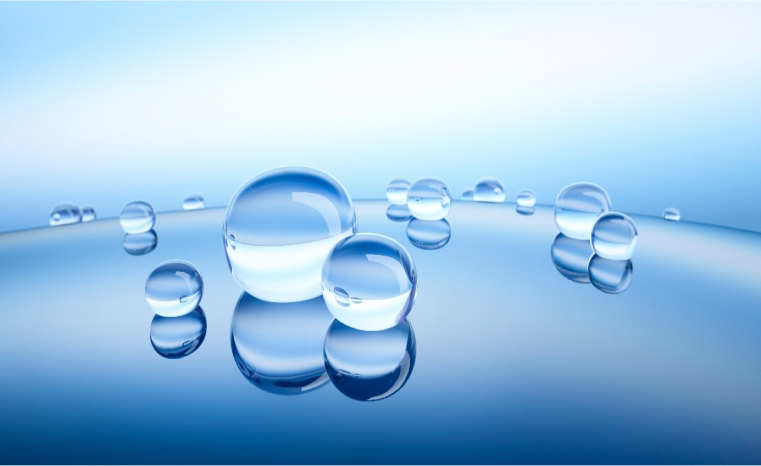
Smart Coatings Versus Functional
Coatings
Next to functional coatings, the term smart coating is often misused. The question remains: when is a functional coating also smart?
Even though there is no fixed definition of when a coating is smart, the consensus is that the smart coating has the added functionality that it actively reacts to an external or internal trigger, whereas the functional coating is a passive layer which is insensitive to environmental conditions.
Stimuli
As it was mentioned before, smart coatings react to an external or internal stimulus. The main categories that may induce the response of the smart coating are:
- UV Light
- Temperature
- pH
- Moisture
- Damage

Chemical Conversion Coating
In the specific case of corrosion protection, chemical conversion can be used as the smart function within the paint or coating. These chemical conversion coatings contain inorganic compounds which rely on the principle of the dissolve – reprecipitation effect in local defects.
In the figure below we can see the principle of a chemical conversion coating. The active protection of the magnesium alloy takes place in 4 stages:
- The dissolution of magnesium (and evolution of hydrogen gas at the AlMn particles)
- The formation of magnesium phosphate
- The nucleus formation of calcium phosphate and zinc phosphate, and finally
- The growth of the crystalline deposit, giving again protection to the magnesium alloy.

Chemical conversion coatings have the important advantages of having excellent mechanical-stability and the simple preparation method of the coatings. Their limitation lies in the low-efficiency self-healing performance, which limits their application in certain ways.
Independent Coatings Sales Repsentative

Let’s Talk
Contact Us
Full Product Catalog



